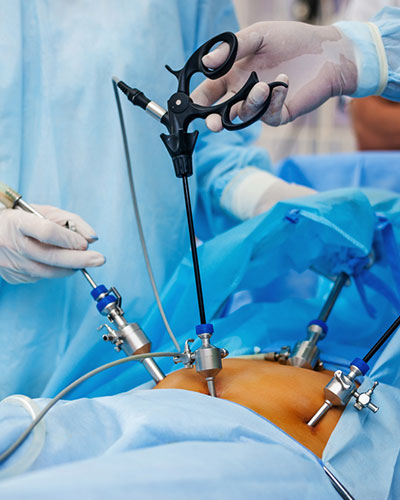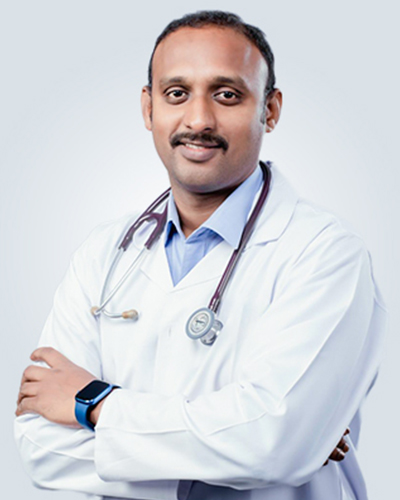Surgical gastroenterology
Surgical gastroenterology is a specialized field of medicine that focuses on surgical interventions related to the gastrointestinal (GI) tract. This branch of surgery addresses a variety of conditions affecting the digestive system, including diseases of the esophagus, stomach, small intestine, colon, rectum, liver, pancreas, and gallbladder. Surgeons in this field are trained to perform complex procedures such as resections, laparoscopic surgeries, and organ transplants, employing both traditional open techniques and minimally invasive approaches. Common conditions treated by surgical gastroenterologists include cancers of the GI tract, inflammatory bowel diseases like Crohn's and ulcerative colitis, peptic ulcers, and complications arising from obesity. Surgical gastroenterologists often work in multidisciplinary teams, collaborating closely with gastroenterologists, radiologists, dietitians, and oncologists to provide comprehensive care. The field is continually evolving with advancements in technology, such as robotic-assisted surgeries and enhanced imaging techniques, leading to better outcomes and quicker recovery times for patients. Overall, surgical gastroenterology plays a crucial role in managing acute and chronic conditions of the digestive system and improving the quality of life for those affected.

Which symptoms warrant a visit from surgical gastroenterologist:
- Severe Gastrointestinal Symptoms: Persistent abdominal pain, nausea, vomiting, or severe heartburn that does not improve with medication warrants evaluation.
- Unexplained Weight Loss: Significant weight loss without dieting or increased physical activity can indicate underlying GI issues.
- Obstructive Symptoms: Difficulty swallowing, bloating, or changes in bowel habits, such as intermittent constipation or diarrhea may suggest structural problems.
- Suspected Cancer: Symptoms like blood in stools, unexplained anemia, or family history of GI cancers should prompt a referral.
- Inflammatory Conditions: Diagnosed conditions like Crohn's disease or ulcerative colitis may require surgical intervention when medical management fails.
- Gallbladder Issues: Severe pain in the upper right abdomen, especially after meals, may signal gallbladder disease or gallstones needing surgical assessment.
- Pancreatic Disorders: Persistent pancreatitis or pancreatic tumors require specialized consultation for potential surgical treatment.
- Gastroesophageal Reflux Disease (GERD): Severe or complicated GERD, particularly with Barrett's esophagus, may necessitate surgical evaluation after maximizing medical therapy.
- Inguinal or Abdominal Hernias: Symptoms of a hernia, especially if painful or strangulated, require surgical assessment.
- Colonoscopy Findings: Polyp removal or findings during colonoscopy that suggest further intervention may prompt a surgical consult.
Common disorders seen in surgical gasteroenterologist:
- Gastroesophageal Reflux Disease (GERD): Chronic acid reflux that may require surgical intervention, such as fundoplication.
- Hiatal Hernia: Condition where stomach bulges through the diaphragm, often treated surgically when symptomatic.
- Gallstones: Hard deposits in the gallbladder that may necessitate cholecystectomy, especially if symptomatic.
- Pancreatitis: Inflammation of the pancreas that may require surgical drainage or resection in chronic cases.
- Diverticulitis: Inflammation or infection of diverticula in the colon; surgery may be needed for recurrent cases.
- Colorectal Cancer: Surgical resection is often essential for treatment, along with staging and potential adjuvant therapies.
- Irritable Bowel Syndrome (IBS): While primarily managed non-surgically, some patients may require intervention for severe cases or complications.
- Bowel Obstruction: Surgical intervention may be needed to relieve blockages due to tumors, adhesions, or other causes.
- Inflammatory Bowel Disease (IBD): Conditions like Crohn's disease and ulcerative colitis sometimes necessitate surgical resection of affected bowel sections.
- Cirrhosis and Liver Tumors: Surgical options might include liver resection or transplantation for patients with tumors or severe liver disease.
- Fistulas and Abscesses: Surgical management may be required to address these complications often associated with IBD or diverticulitis.
Tips to main good digestion:
- Stay Hydrated: Drink plenty of water throughout the day to aid digestion and prevent constipation.
- Eat a High-Fiber Diet: Incorporate fruits, vegetables, whole grains, and legumes to improve bowel movement.
- Practice Mindful Eating: Chew food thoroughly and eat slowly to enhance digestion and reduce bloating.
- Limit Processed Foods: Reduce intake of high-fat and sugary processed foods, which can disrupt digestive health.
- Regular Meal Schedule: Try to eat at the same times each day to regulate your digestive system.
- Include Probiotics: Consume foods like yogurt, kefir, and fermented vegetables to support a healthy gut microbiome.
- Avoid Overeating: Stick to moderate portion sizes to prevent stress on the digestive system.
- Stay Active: Engage in regular exercise to stimulate intestinal function and alleviate digestive issues.
- Limit Carbonated Beverages: Reduce consumption of sodas and fizzy drinks to prevent gas and bloating.
- Manage Stress: Practice relaxation techniques such as yoga or meditation to positively influence digestion.
- Prioritize Sleep: Ensure sufficient rest to support overall bodily functions, including digestion.

Dr. PAVAN VELINENI
M.S(Gold medal),DNB(General Surgery),
MRCS (London),
FIAGES,FIE,FALS (Bariatric Surgery)
DNB (Surgical Gastroenterology)-AIG,Hyd
Consultant Surgical Gastroenterologist and
GI Oncologist
Laparoscopic Bariatric Surgeon,
Therapeutic endoscopist
Laser Proctologist
Dedicated and highly skilled Gastroenterologist with extensive experience in laparoscopic cancer surgeries and advanced laser endoscopy techniques. Committed to delivering high-quality patient care and maintaining the highest standards in surgical practices. Proven track record in diagnosing and treating complex gastrointestinal disorders, with a focus on minimally invasive procedures. Adept at collaborating with multidisciplinary teams to ensure optimal patient outcomes and uphold excellence in healthcare delivery. Passionate about continuous learning and contributing to advancements in the field.
Skills:
- Basic and advanced surgical skills
- Advanced laparoscopic skills
- Endoscopic skills
- Trained in basic and advanced life support
- Experienced in cancer surgeries
Educational background:
- MBBS : GSL Medical College, Rajahmundry, AP
- M.S(General Surgery) : Andhra Medical College, Vishakapatnam
- DrNB(Surgical Gastroenterology) : Asian Institute of Gastroenterology, Hyderabad
- MRCS (London) : Royal College of Surgeons, England
- DNB (General Surgery) : National Board of Examinations, New Delhi
Professional Background:
- October 2020 - Current
SENIOR CONSULTANT KAMINENI HOSPITAL | VIJAYAWADA, INDIA- Directed surgical gastroenterology department, achieving high standards of clinical excellence Performed complex laparoscopic surgeries
- Specialised in hepatic and biliary surgeries
- Conducted various diagnostic and therapeutic endoscopic procedures
- Executed advanced laser techniques for colorectal issues
- March 2017 - Current
SURGICAL GASTROENTEROLOGY RESIDENT ASIAN INSTITUTE OF GASTROENTEROLOGY - June 2015 - March 2017
ASSISTANT PROFESSOR KIMS, AMALAPURAM

